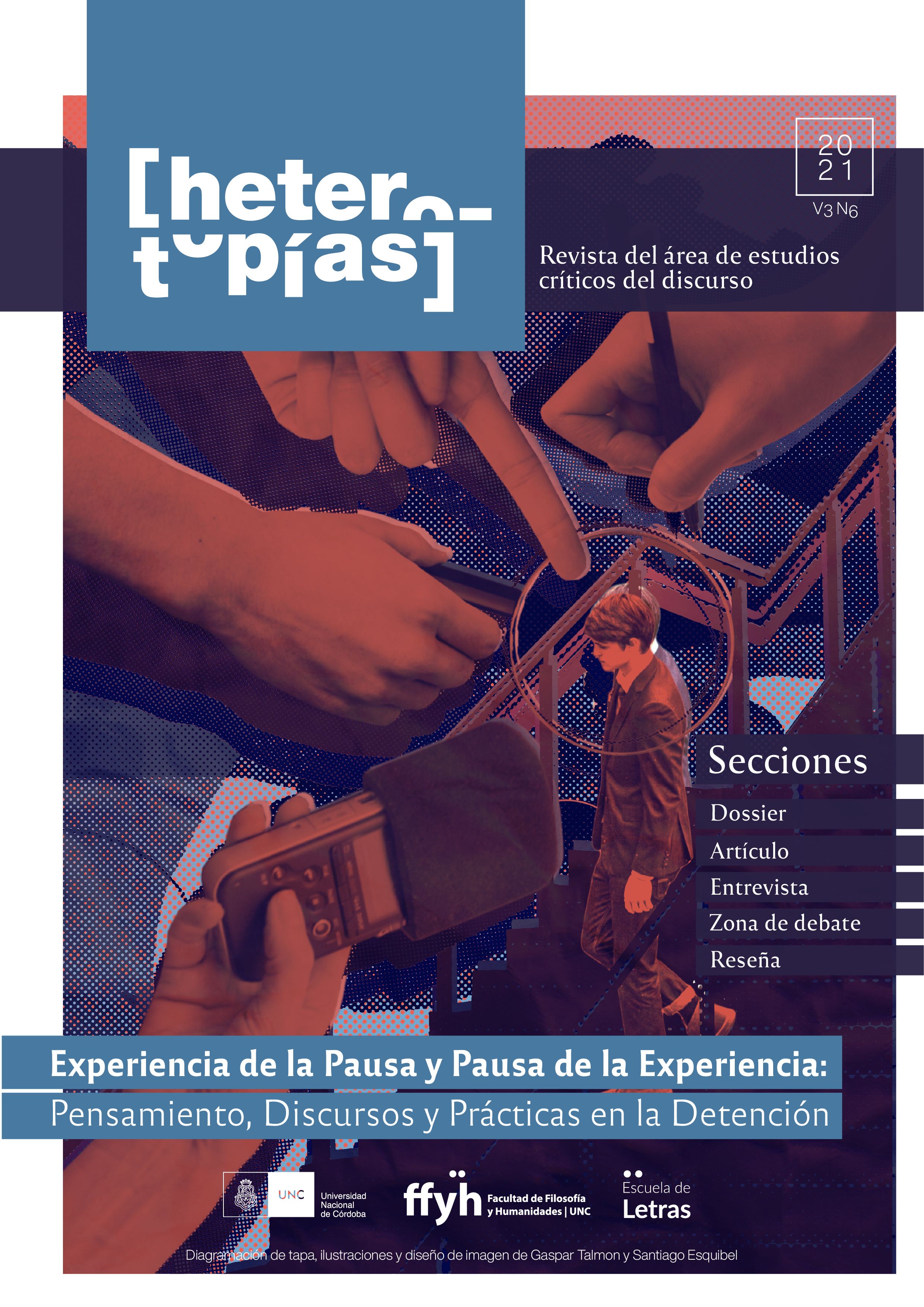Flash ethnography and story-telling booths: interruption of educational sites for the approximations to discourses around sexual diversity
Main Article Content
Abstract
The so called sexual diversity has become a political and academic, novel issue in the last ten years in Mexico, particularly that which regards to LGBT identities, thanks to the organizational force of these identities, that inform being victims of constant homophobic violence. These forms of violence occur frequently in schools, an issue that make a rigid regulatory framework on the body, sexuality and gender very evident, and where formal educational has a central role. In this paper, we report the experience of a group of researchers from different generations, cultures and countries on the use of an experimental and novel methodology that provokes interruptions—pauses—in schools. This method consisted of introducing a sound-proof booth (a wooden artefact of two meters, by one meter, by one meter) into schools, into which one could enter to “tell a story on sexual diversity”, be it individually or collectively, that would be registered by a videocamera or audiorecorder. The booth remained in each school for two weeks, during which we developed participant observation and interviews. We called this flash ethnography, due to its short duration and intention of interrupting the school’s everyday life. In this text we reflect on the implications of this method, as a pause for the sites in which we worked and for ourselves. A pause that allowed to re-establish the pedagogical, sexual and affective logics, norms and politics of each site, that provided opportunities to tell typical and dissident stories on what is conceived as sexuality and sexualdiversity in schools. Another relevant effect was the constitution of an us as an other to each site, something that constituted us as vulnerable, but privileged to carry out observation.
Downloads
Article Details

This work is licensed under a Creative Commons Attribution-NonCommercial-ShareAlike 4.0 International License.
Those authors who have publications with this journal, accept the following terms: Those authors who have publications with this journal, accept the following terms:
a. The authors will keep their copyright and guarantee to the journal the right of first publication of their work, which will be simultaneously subject to the Creative Commons Attribution - Non-Commercial - Share Alike (by-nc-sa) Attribution License; no commercial use of the original work or any derivative works is allowed, the distribution of which must be done with a license equal to the one that regulates the original work.
b. Authors may adopt other non-exclusive license agreements for the distribution of the published version of the work (e.g., deposit it in an institutional telematic archive or publish it in a monographic volume) provided that the initial publication in this journal is indicated.
c. Authors are allowed and recommended to disseminate their work through the Internet (e.g. in institutional telematic archives or on their website) before and during the submission process, which may lead to interesting exchanges and increase the number of citations of the published work. (See The effect of open access).
References
Augé, M. (1993). Los “no lugares” espacios del anonimato. Una antropología de la sobremodernidad. Barcelona: Gedisa.
Baruch, R., Pérez, R., Valenia, J., Rojas, A. (2017). Segunda encuesta nacional sobre violencia escolar basada en la orientación sexual, identidad y expresión de género hacia estudiantes LGBT en México. CDMX. Fundación Arcoiris, El Closet de Sor Juana, Inspira, COJESS, Espolea.
Butler, J. (1992). Cuerpos que importan: sobre los límites discursivos del sexo. Buenos Aires: Paidós.
Fields, J., Mamo, L., Gilbert, J., Lesko, N. (2014). Beyond bullying. Contexts, 13(4), 80-83.
Foucault, M., Miskowiec, J. (1986). Of other spaces. Diacritics, 16(1), 22-27.
Gilbert, J., Fields, J., Mamo, L., Lesko, N. (2018). Intimate possibilities: The Beyond Bullying Project and Stories of LGBTQ Sexuality and Gender in US Schools. Harvard Educational Review. 88(2). 163-183.
Gorelik, A. (1998). La grilla y el parque: Espacio público y cultura urbana en Buenos Aires, 1887-1936. Buenos Aires: Universidad Nacional de Quilmes.
Harrington, B. (2002). Obtrusiveness as Strategy in Ethnographic Research. Qualitative Sociology.25(1). 49-61.
Laguarda, R. (2009). Ser gay en la ciudad de México: Lucha de representaciones y apropiación de una identidad, 1968-1982.México: CIESAS-Instituto Mora.
Lozano-Verduzco, I., Rocha, T.E. (2015). Analysis of the category “Gay Identity”: situated knowledge in Mexico.Psychology of Sexuality Review. 56-73. 6 (1).
Lozano-Verduzco, Ignacio, Fernando Salinas-Quiroz. 2016. Conociendo nuestra diversidad: discriminación, sexualidad, derechos, salud, familia y homofobia en la comunidad LGBTTTI. Ciudad de México: ActuaDF, COPRED.
Malinowski, B. (1995). Los argonautas del pacífico occidental. Barcelona: Península.
Mason-Bish, H. (2018). The Elite Delusion: reflexivity, identity and positionality in qualitative research. Qualitative Research. 19. 263-276.
Nuñez, G. (2016). ¿Qué es la diversidad sexual? Ciudad de México: PUEG-UNAM
Mogrovejo, N. (2008). Diversidad sexual, un concepto problemático. Revista Trabajo Social. 18. 62-71.
Schwalbe, M. (1996). The mirrors in men’s faces. Journal of Contemporary Ethnography. 25(1). 58-82.
Tedlock, B. (2013). La observación de la participación y el surgimiento de la etnografía pública. En N. K. Denzin, Y. S. Lincoln (comps.). Manual de Investigación cualitativa Volumen III: Estrategias de investigación cualitativa. 198-227.Barcelona, España: Editorial Gedisa.
Vargas, S. (2014). Saliendo del clóset en México: ¿queer, gay o maricón? En R. Parrini Roses, A. Brito (coords.). La memoria y el deseo. Estudios gay y queer en México. CDMX: PUEG-UNAM
